New U.S. Global Health Security Strategy includes 7‑1‑7
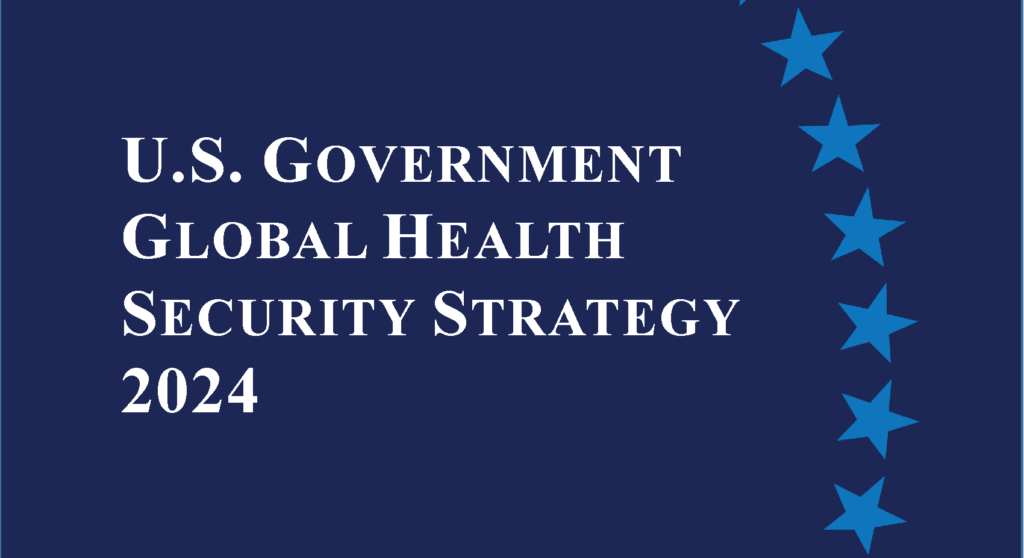
On April 16, 2024, the United States Government announced a new five-year Global Health Security Strategy to better prevent, detect, respond to and recover from infectious disease threats. The 7-1-7 Target is included to help U.S. partners assess and improve the real-world performance of their detection, notification and early response systems.
Dr. Frieden on Rebuilding Trust in Public Health
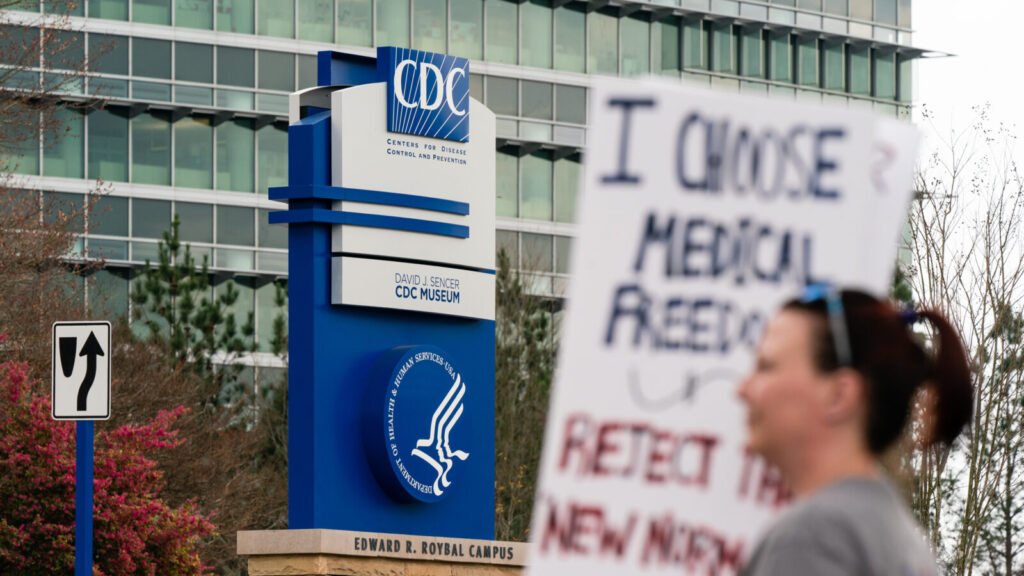
Trust in public health and the government has dwindled amid the pandemic, with stark partisan divides deepening the issue. In an op ed published in STAT News, President and CEO of Resolve to Save Lives Dr. Tom Frieden outlines three actions that must be prioritized to restore trust.
Celebrating World Health Worker Week
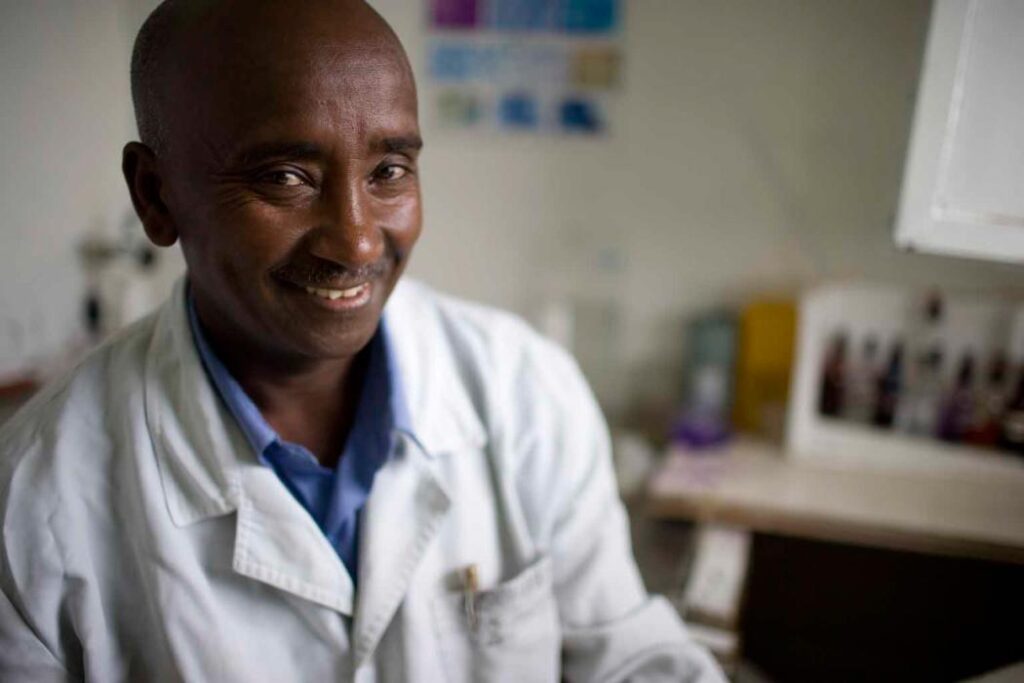
Amanda McClelland, our Senior Vice President of Prevent Epidemics, published a blog post for World Health Worker Week exploring how Resolve to Save Lives partnered with Ethiopia to create the nation’s first domestic infection prevention and control (IPC) budget. This landmark achievement is a much-needed step toward making sure every frontline health worker is kept […]
Leadership training for health security leaders
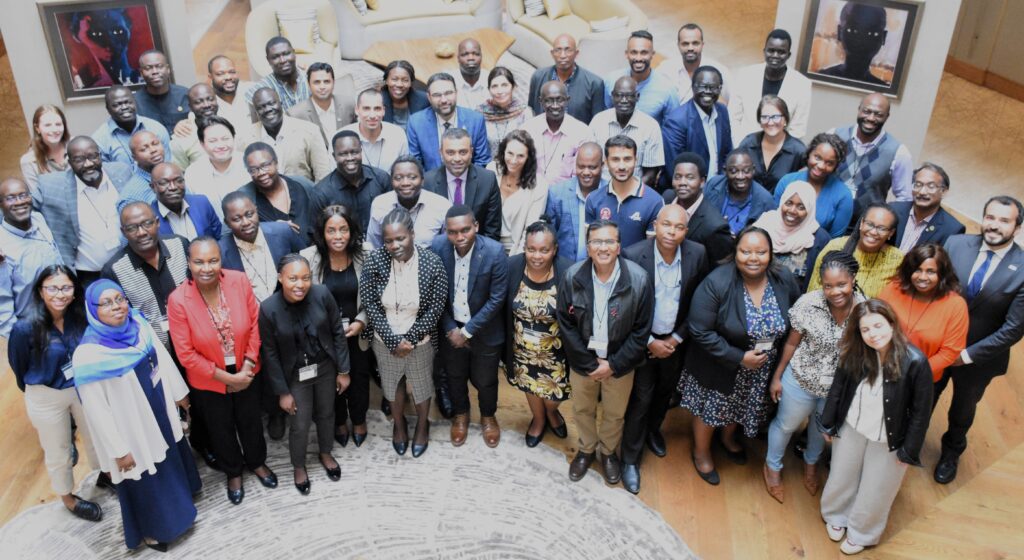
71 public health experts from 12 countries across Africa and the Middle East recently gathered in Nairobi, Kenya, for Program Management for Epidemic Preparedness (PMEP) Core, our one-week leadership and management training for health security experts. PMEP aims to equip participants with practical, technical and leadership skills to strengthen their institutional practices, programs and partnerships—and […]
Welcome to the leadership and learning laboratory for health security leaders
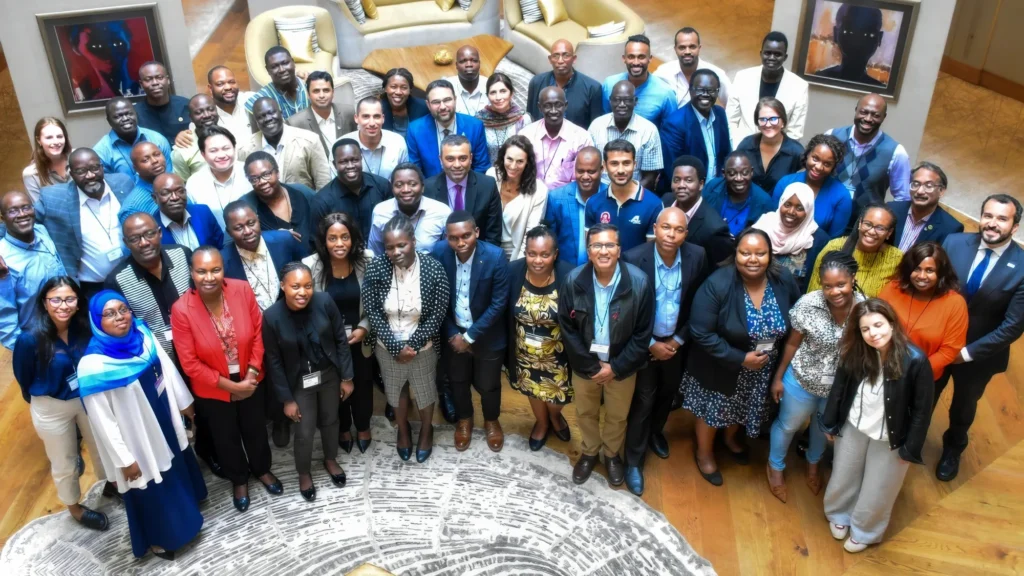
PMEP equips health security experts with practical, technical and leadership skills.
Nigeria’s Kano State passes Public Health Security Bill into law

On February 27, 2024, the Kano State House of Assembly passed into law the Public Health Security Bill 2023, which was developed in partnership with Resolve to Save Lives. This landmark legislation—the first of its kind at the subnational level in Nigeria—establishes a robust framework for public health surveillance, emergency management, and the protection of […]
Celebrating the progress and partnerships that defined 2023
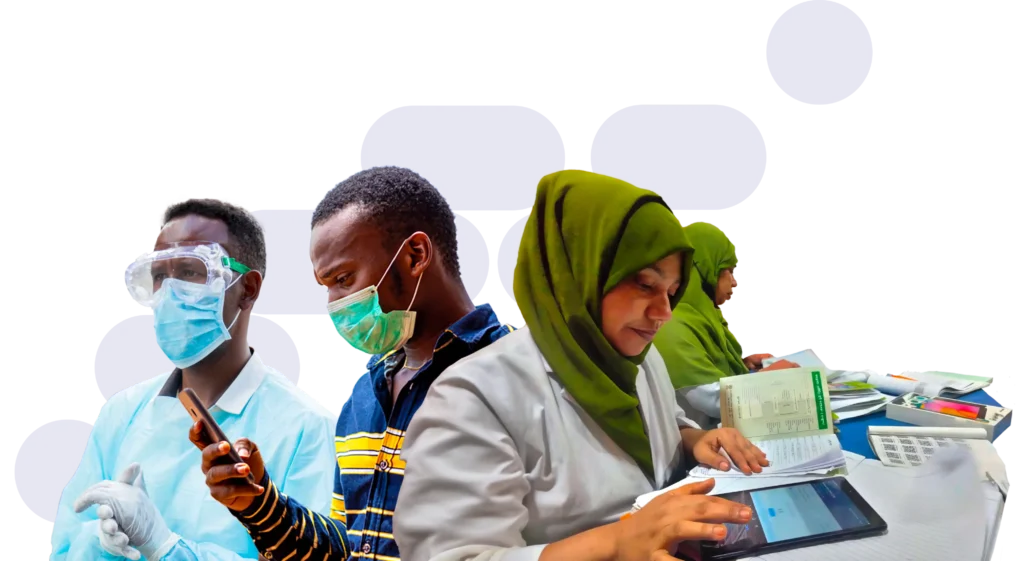
RTSL’s 2023: Year in Review is our first-ever digital annual report, looking back at a remarkable year of saving lives and making the world safer from epidemics in 2023. The HEARTS program for hypertension control now treats more than 19 million patients for the world’s deadliest condition. The trans fat elimination policies passed in 2023 […]
In light of climate change, we need proactive approaches to minimize outbreaks
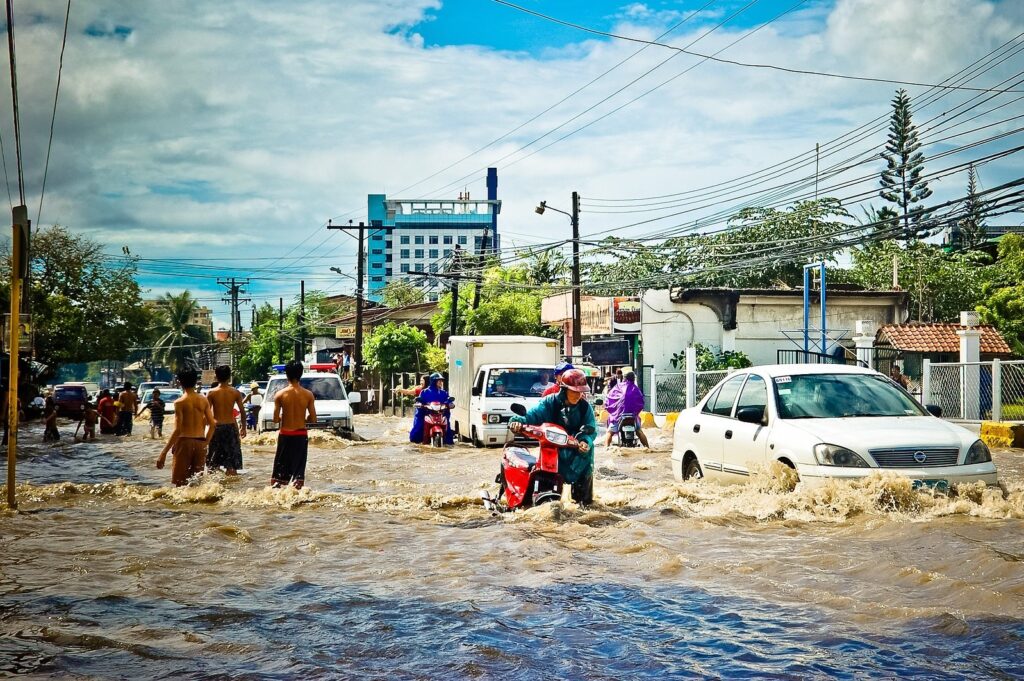
For Think Global Health, Amanda McClelland, our Senior Vice President of Prevent Epidemics, explains how early-warning approaches can help minimize the spread of infectious disease outbreaks. “This shift from reactive to proactive response is particularly important in light of climate change, which amplifies the impacts of infectious disease spread and brings infectious diseases to new […]
Building an outbreak surveillance system in Zambia
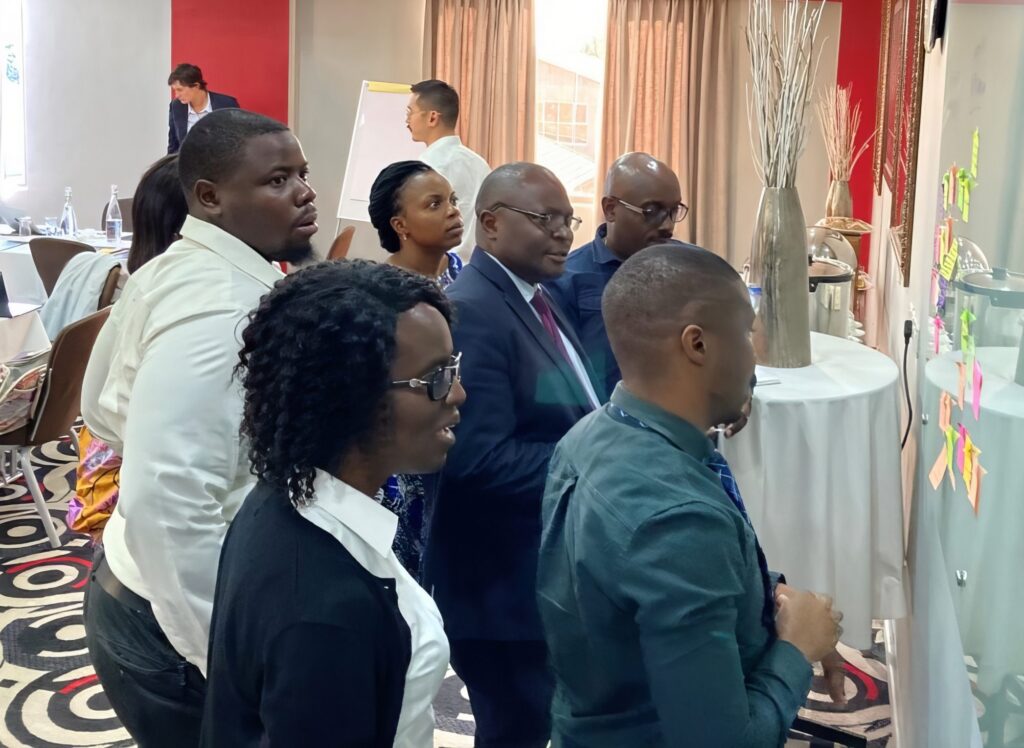
We teamed up with Zambia National Public Health Institute (ZNPHI) to build an early model for a new outbreak surveillance system that will provide visibility on outbreaks across the country and ultimately allow ZNPHI to better respond to infectious disease threats. The early model was created during a one-week design sprint using a methodology we’ve […]
Sprinting towards health security: how Zambia built an outbreak surveillance system in just one week

Design sprints from the tech world are changing the game in public health.
Strengthening laboratory systems to meet the 7-1-7 target
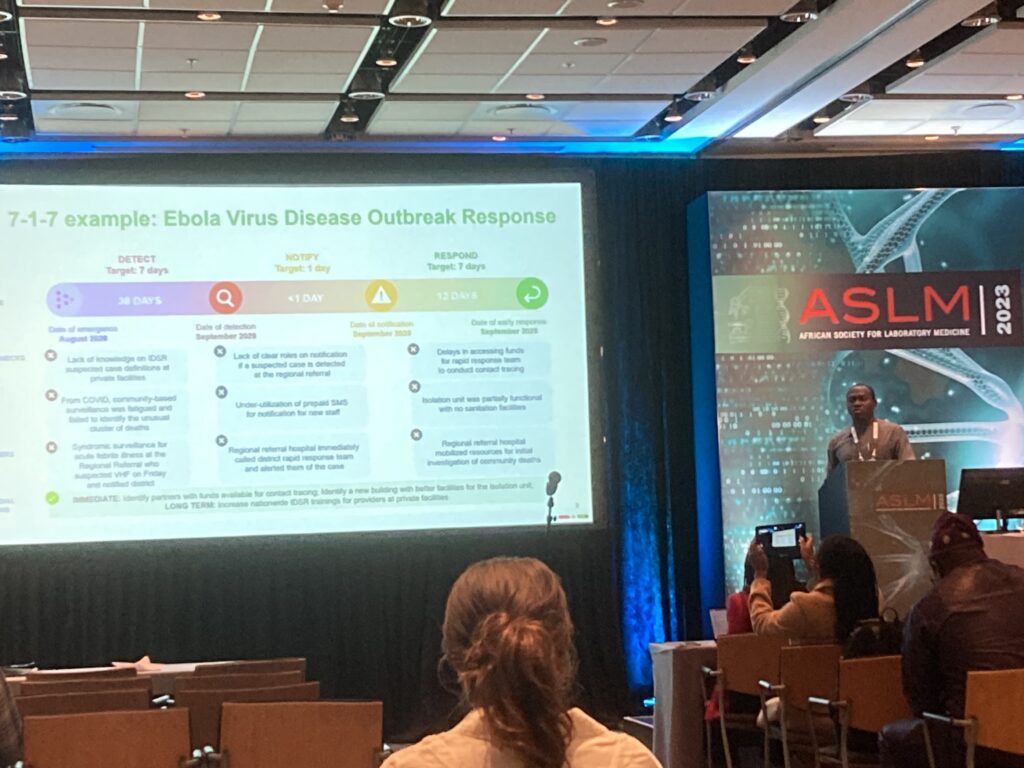
The 7-1-7 Alliance hosted a symposium at the annual conference of the African Society of Laboratory Medicine (ASLM) in Cape Town, South Africa. Panelists from the Nigeria Center for Disease Control and Prevention, ASLM, FIND and Makerere University Walter Reed Project discussed the crucial role of diagnostics in achieving the 7-1-7 target for outbreak detection […]
Addressing the global shortage of health care workers

Amanda McClelland, our Senior Vice President of Prevent Epidemics, published an op-ed in CNN proposing recommendations to address the growing global shortage of health care workers. Read the full column here.
Training Nigeria’s frontline workers to spot priority diseases
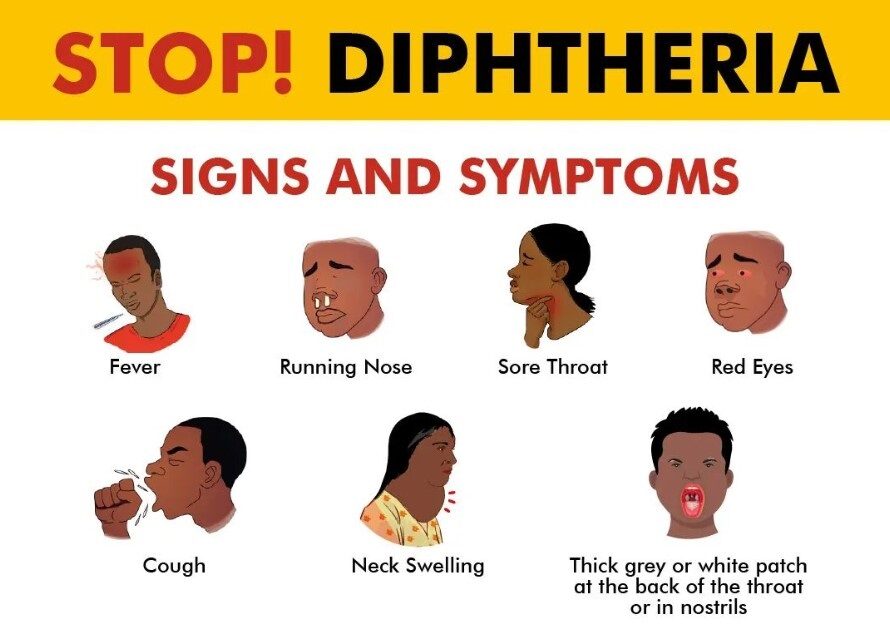
Through our partnership with the African Field Epidemiology Network, we’re piloting a mobile-first training course on six of the highest priority diseases in Nigeria to make sure primary health care workers can spot symptoms and report cases quickly.
WHO and the 7-1-7 Alliance introduce Early Action Reviews
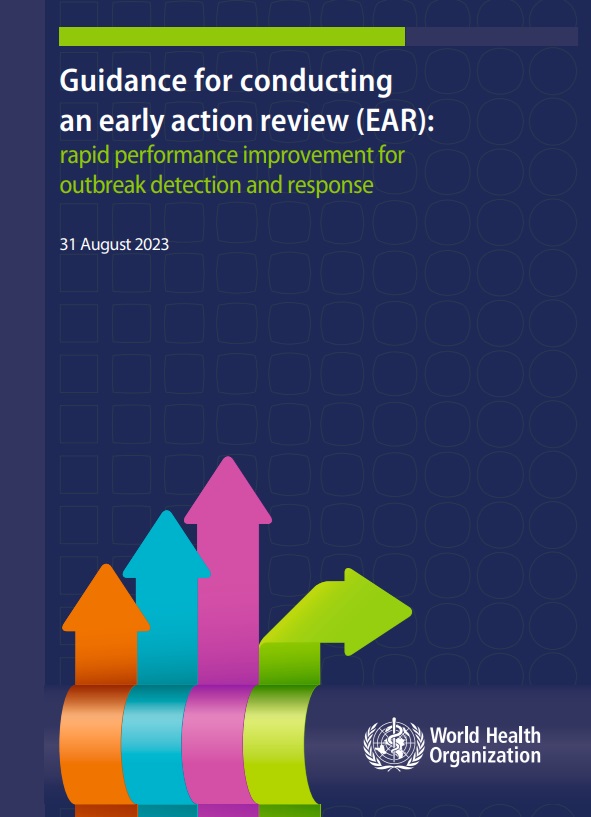
The 7-1-7 Alliance hosted the first quarterly webinar open to its global learning network. More than 500 people from 73 countries signed up to hear representatives of the World Health Organization and the Alliance introduce new guidance on Early Action Reviews and how it leverages the 7-1-7 target to improve the performance of outbreak detection, […]
Developing technical capacity to scale up 7-1-7

The 7-1-7 Alliance hosted a training series for Atlanta-based staff of the U.S. Centers for Disease Control and Prevention. A first virtual training session introduced the 7-1-7 target, its central role in the WHO Early Action Review guidance, and how 7-1-7 fits into key components of the global health security framework. In a two-day, in-person […]
Introducing Resolve to Save Lives Ethiopia
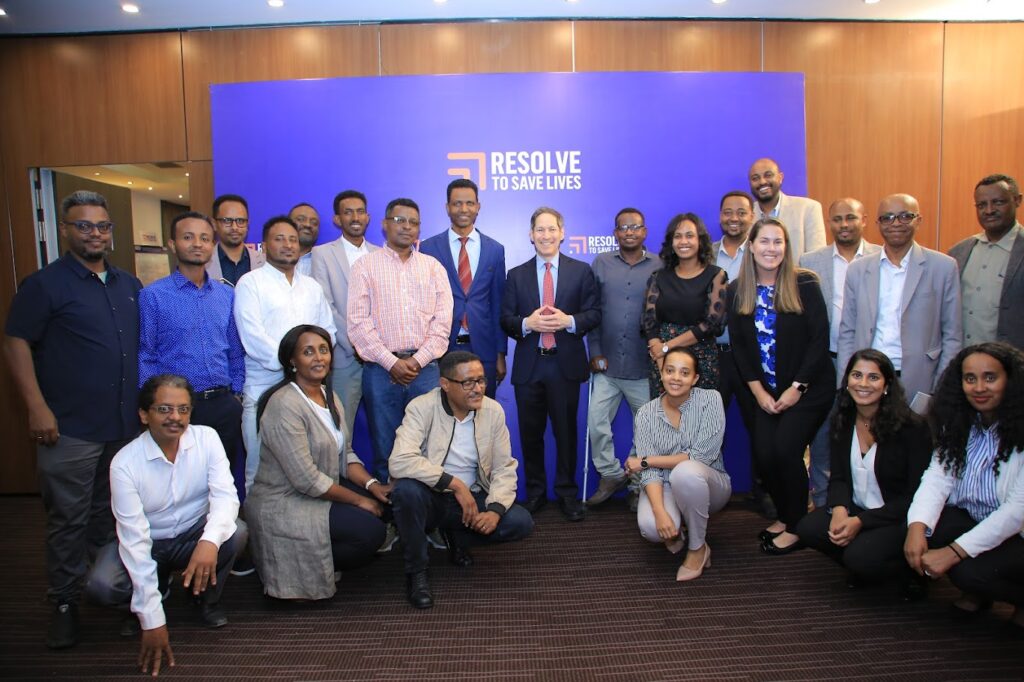
Resolve to Save Lives is now registered in Ethiopia, allowing for more efficient program support. Located in Addis Ababa, the Ethiopia office looks forward to continued progress in hypertension management, trans fat elimination, epidemic prevention and emergency response.
Technical and leadership skills for experts in epidemic preparedness
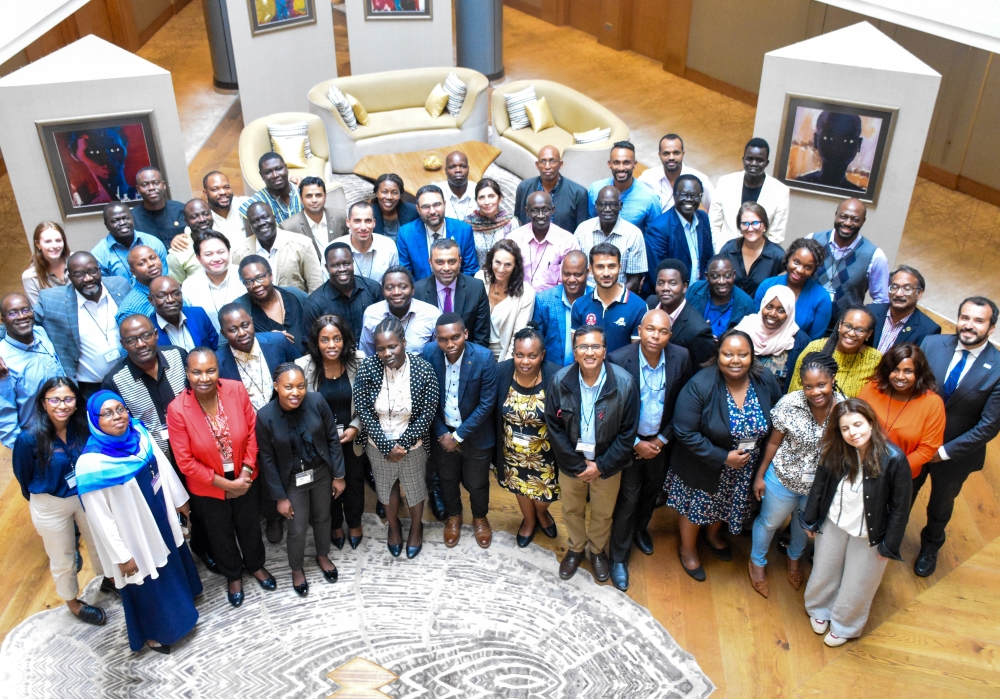
Our team visited Nairobi, Kenya, to facilitate our Program Management for Epidemic Preparedness (PMEP) training for 71 health security leaders from 12 English- and French-speaking countries in Africa and the Eastern Mediterranean. A selection of participants will advance into our new 12-month program offering funding and coaching to develop their national action plans for health […]
Launching our new Epidemic-Ready Primary Health Care program
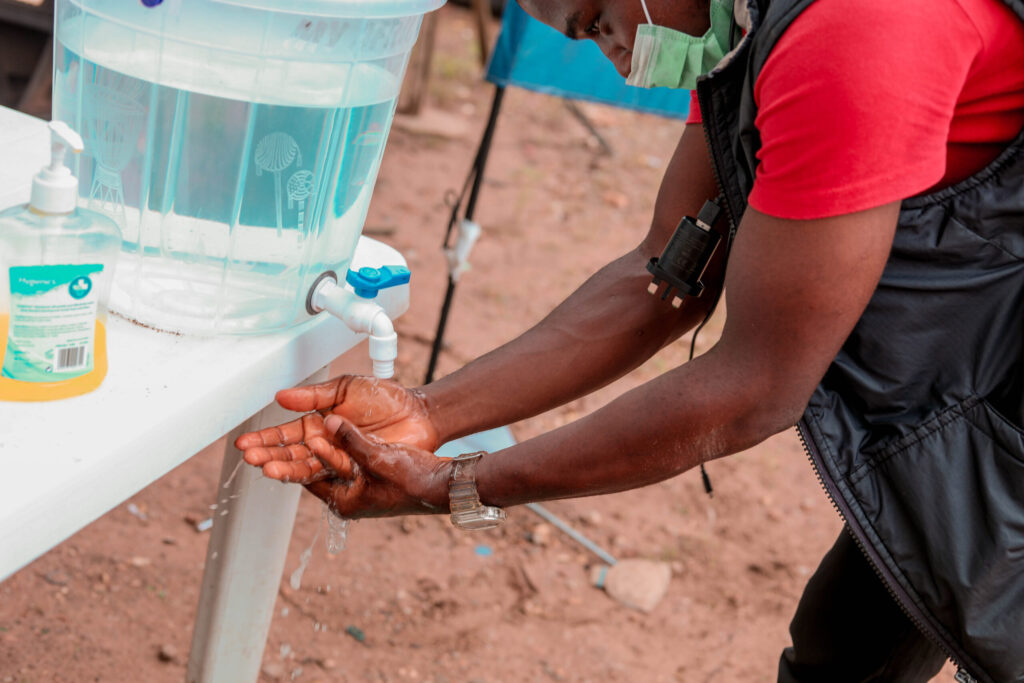
We launched our new Epidemic-Ready Primary Health Care program in Ethiopia, Nigeria, Sierra Leone, and Uganda to make sure their primary health facilities can detect outbreaks promptly and safely deliver essential services.
7-1-7 forms the bedrock of new WHO guidance
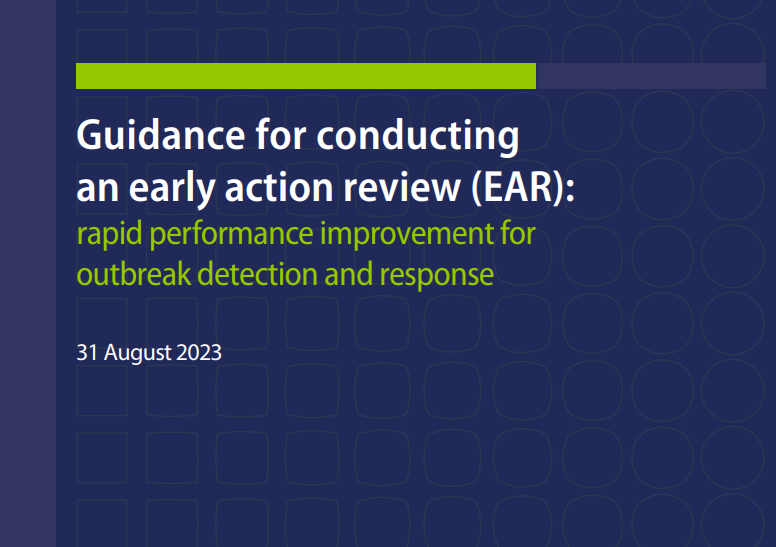
The World Health Organization’s new Guidance and tools for Conducting an Early Action Review (EAR) incorporate the 7-1-7 target for outbreak detection and control, which Resolve to Save Lives has piloted since 2021. EARs offer a performance improvement approach, which can be used for each outbreak to identify system-level bottlenecks and propose immediate and long-term […]
Strengthening leadership and management for preparedness in Ethiopia
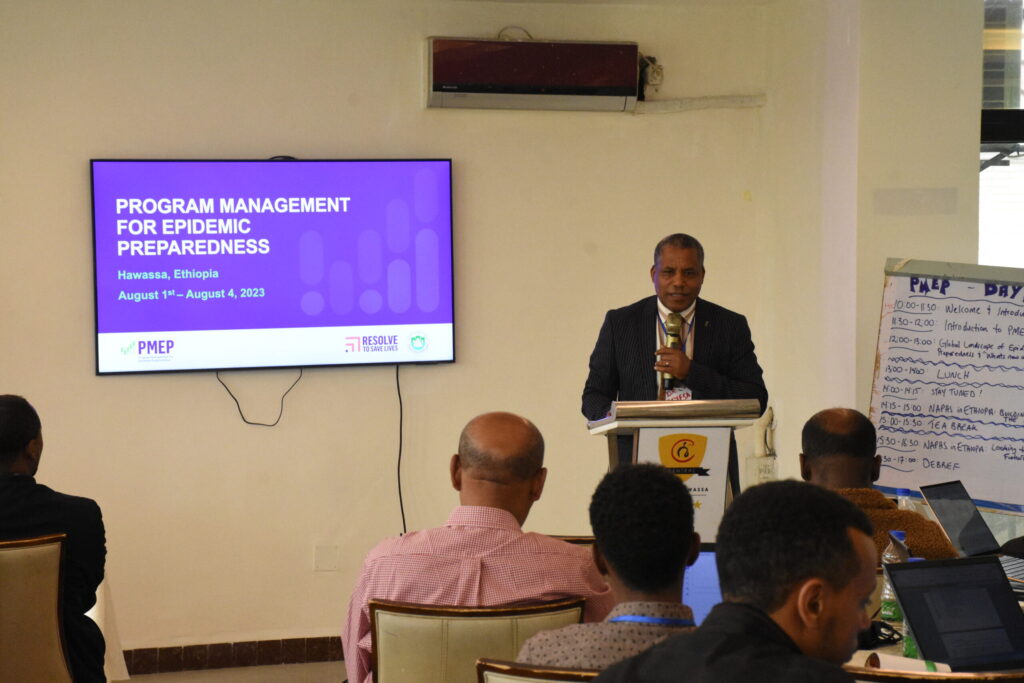
Our team convened in Hawassa, Ethiopia, to facilitate a four-day leadership and management program for epidemic preparedness for 33 of the nation’s health security leaders. The training will support efforts to strengthen Ethiopia’s health security over the next five years.
First-of-its-kind study details the true cost of health care worker infections
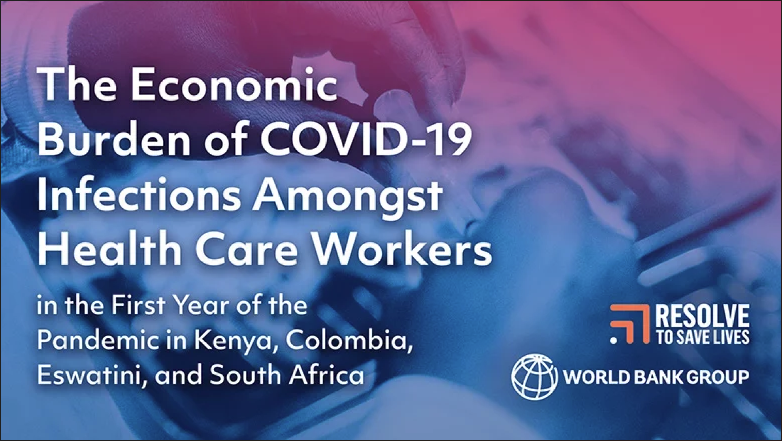
At the launch our new study with the World Bank estimating the full economic burden of failing to protect health care workers, Senior Vice President of Prevent Epidemics Amanda McClelland and other speakers called for increased investments to improve protections for health care workers.
Ethiopia among World Bank Pandemic Fund’s first grantees
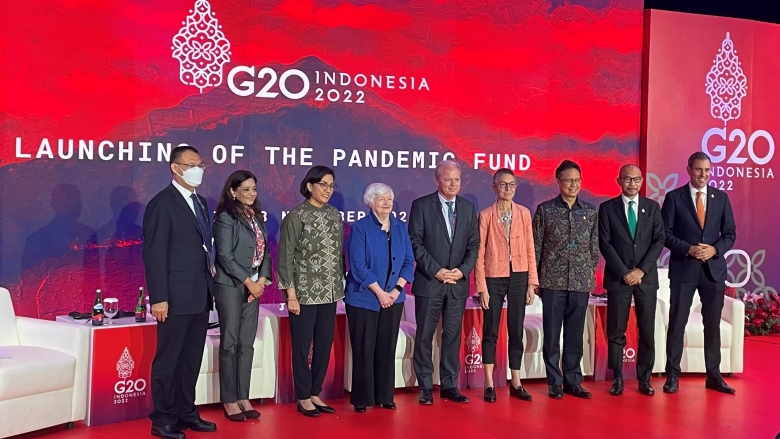
The Pandemic Fund is the first multilateral financing mechanism dedicated to providing multiyear grants to help low- and middle-income countries become better prepared for future pandemics. Ethiopia just became one of the first countries to achieve a grant towards better epidemic preparedness, with support from our in-country team. Image credit: World Bank
Ethiopia’s first-ever domestic infection prevention and control budget

Strong infection prevention and control (IPC) programs are essential to protect health care workers, patients, caregivers and communities. Although the World Health Organization has identified budgets as a core component of national IPC programs, only 50% of member states currently have dedicated domestic funding. Our team worked with Ethiopia’s Ministry of Health to develop its […]
Going back to basics to stop the ongoing cholera pandemic

The focus on clean water, better health care and public health, and expanded vaccine production needed to control the spread of cholera today will prepare the world for future health crises and save lives.
7-1-7 Alliance gains momentum
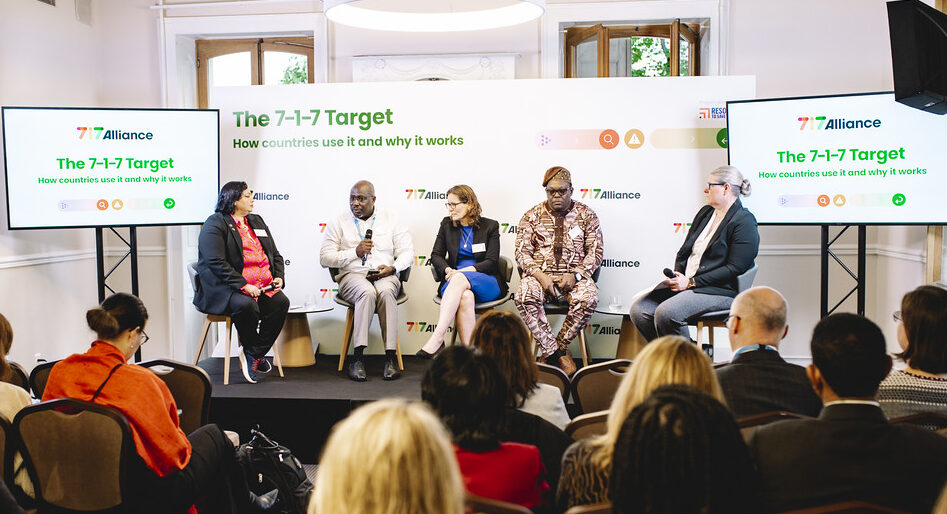
Our World Health Assembly side event showcased initial progress implementing the 7-1-7 target and the ongoing work of the 7-1-7 Alliance, empowering public health leaders to further accelerate advancements in health security.
Four epidemics that weren’t—New Ted-Ed video explains
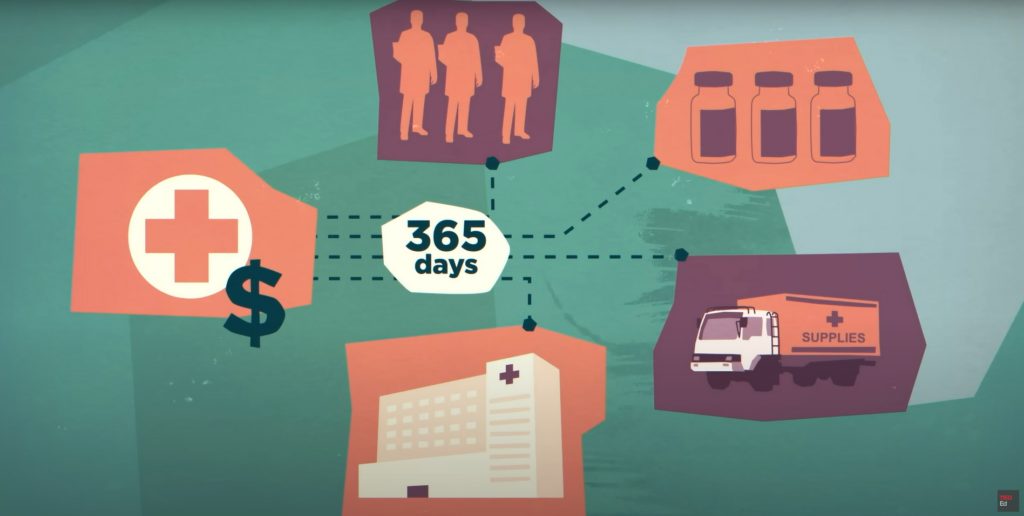
A new video from TED-Ed—developed with support from the Skoll Foundation and technical insight from Resolve to Save Lives —explores how four communities implemented strategies for effective outbreak response ad why investing in epidemic preparedness and prevention matters.
How much did health care worker illness and death cost during COVID-19?
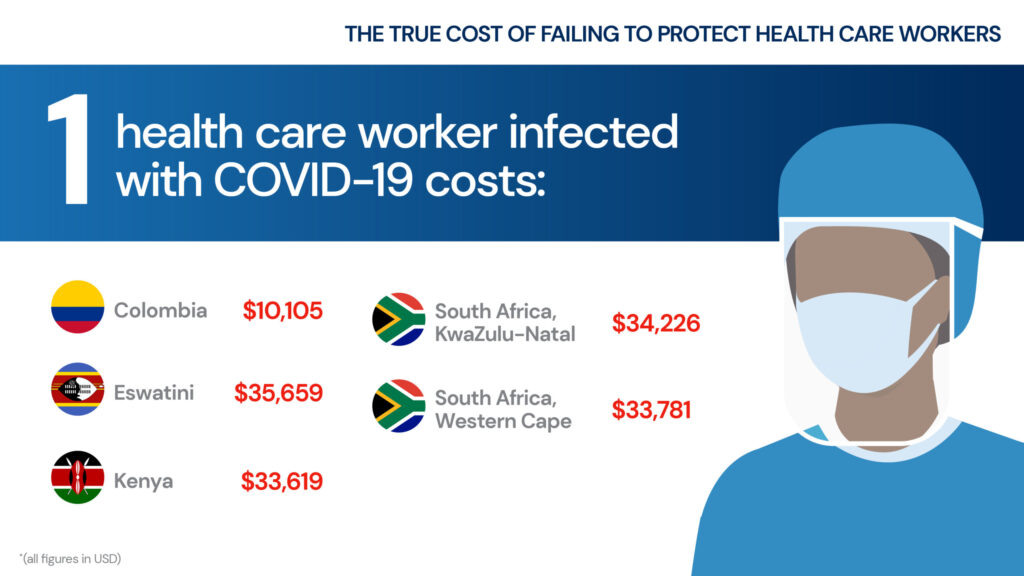
Developed in partnership with the World Bank, our latest article in Nature Communications provides a new framework for understanding the true cost of health care worker illness and death during COVID-19 and demonstrates that investing in protecting health care workers is an effective use of health spending.
The road to achieving epidemic-ready primary health care

Stopping epidemics starts with primary health care. Our new article in The Lancet Public Health explains why epidemic-ready primary health care could– and should– be a landmark achievement of our pandemic recovery.
7-1-7 target in Lancet Global Health

RTSL’s Prevent Epidemics Team publishes evidence from early pilots on the 7-1-7 target for early detection of and response to disease threats.
The 7-1-7 Alliance is a new country-led, global partnership to improve health security
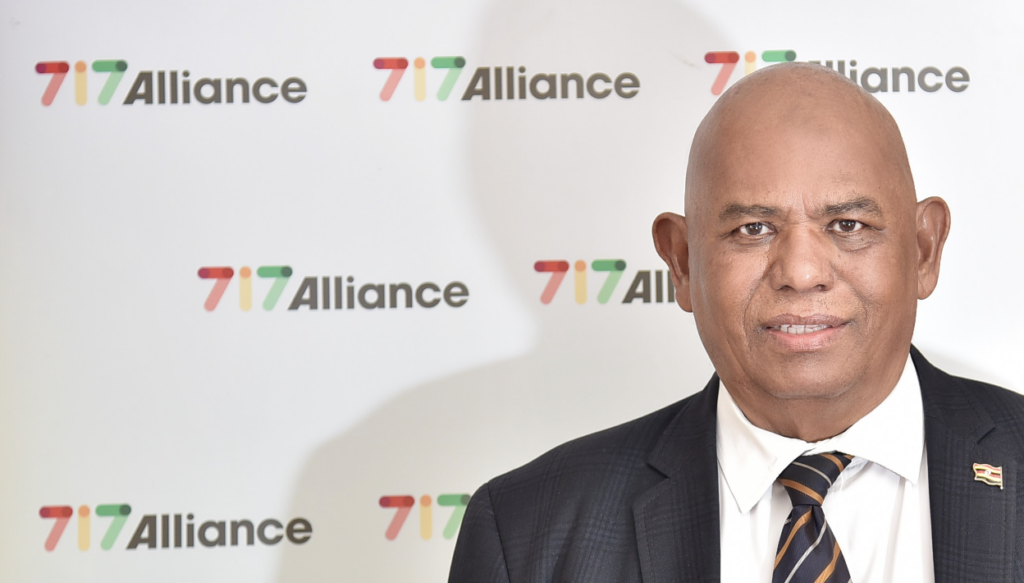
Dr. Issa Makumbi, Director of Uganda’s Public Health Emergency Operations Centre, will serve as inaugural Chair of the Technical Steering Group for The 7-1-7 Alliance: a country-led partnership for technical assistance, financial support and a growing, global community of practice to help all countries achieve the 7-1-7 target for outbreak detection and control.